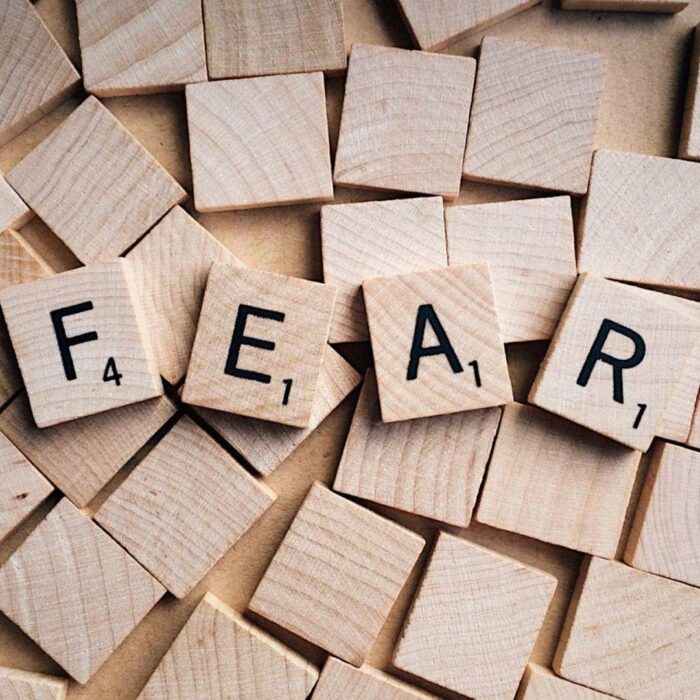Understanding core fears
A Guide to Self-Awareness and Healing
Let’s explore the concept of core fears and their impact on mental health and behavior. Learn how therapy can help resolve these fears, promoting resilience and personal growth.
Introduction
Core fears lie at the heart of our psychological struggles. They often serve as the root cause of defensive behaviors, self-doubt, and emotional pain. These fears can manifest in subtle ways, influencing relationships, decision-making, and even physical health. By identifying and addressing core fears, you can embark on a journey toward greater self-awareness, healing, and resilience.
As a clinician specializing in anxiety, trauma, and chronic pain, I help clients uncover these fears and work through them using strategic psychotherapy and clinical hypnotherapy. This process allows for deep subconscious integration, leading to meaningful and lasting change.
What Are Core Fears?
Core fears are deep-seated emotional triggers that stem from early experiences, beliefs, and vulnerabilities. These fears often revolve around themes such as rejection, failure, abandonment, or inadequacy. They are universal, yet their intensity and manifestation differ from person to person.
How Core Fears Activate Defense Mechanisms
When core fears are triggered, they activate defense mechanisms to protect us from perceived harm. These mechanisms may include avoidance, denial, perfectionism, or aggression. While these responses are meant to shield us, they often create more challenges, such as strained relationships or missed opportunities for growth.
For example, a fear of rejection might lead to avoiding close connections, while a fear of failure might result in procrastination or overworking.
The Counter-Scripts: A Path to Healing
In therapy, we work to identify and rewrite the subconscious “scripts” that perpetuate these fears.
Counter-scripts are empowering beliefs and behaviors that counteract the core fear.
For instance:
- For a fear of rejection: developing self-compassion and affirming your worth.
- For a fear of failure: cultivating a growth mindset and embracing learning opportunities.
- For a fear of abandonment: building trust and secure attachments.
These scripts are integrated at a subconscious level through techniques like clinical hypnotherapy, allowing for sustainable change.
Why Addressing Core Fears Matters
Impact on Mental Health
Core fears are often linked to anxiety, depression, and other mental health challenges.
By addressing them, you can:
- Reduce symptoms of anxiety and stress.
- Enhance emotional regulation.
- Build resilience to future challenges.
Impact on Physical Health
Unresolved fears can also take a toll on the body.
Chronic stress and fear can lead to:
- Increased inflammation.
- Digestive issues.
- Sleep disturbances.
Therapy helps alleviate these effects by promoting a sense of safety and balance.
Impact on Relationships
Core fears often influence how we relate to others. For instance:
- Fear of abandonment can result in clingy or avoidant behavior.
- Fear of inadequacy can lead to overcompensating or withdrawing.
By addressing these fears, you can foster healthier, more fulfilling relationships.
Therapy for Core Fears
As a strategic psychotherapist and clinical hypnotherapist, I guide clients through a personalized process to:
- Identify their core fears.
- Understand how these fears manifest in their thoughts, behaviors, and relationships.
- Reframe and integrate new, empowering beliefs and patterns.
Through this journey, clients gain clarity, confidence, and the tools to thrive.
Expanding Your Understanding of Core Fears
The core fears discussed in this article are universal and can manifest in various ways across individuals. For those interested in exploring a structured approach, the Enneagram of Personality offers valuable insights.
This model identifies nine distinct personality types, each associated with a specific core fear:
- Fear of being without support or guidance (Type 6).
- Fear of conflict or separation (Type 9).
- Fear of being worthless or incompetent (Type 3).
- Fear of being unloved or unwanted (Type 2).
- Fear of being deprived or trapped in pain (Type 7).
- Fear of being overwhelmed or invaded (Type 5).
- Fear of being controlled or weak (Type 8).
- Fear of being corrupt or immoral (Type 1).
- Fear of being average or insignificant (Type 4).
While this article focuses on fears observed in therapeutic contexts, integrating insights from frameworks like the Enneagram can further deepen self-awareness and offer additional tools for personal growth. Therapy sessions can help you identify how these fears show up in your life and work on resolving them at a subconscious level.
Take the Next Step
Are core fears holding you back? Let’s explore them together and create lasting change. Contact me at BodyMind Therapy to book a session and start your journey to self-discovery and emotional freedom.
In therapy, we will together explore your behavior and underlying belief, and proceed as follow:
- Identify your core fears
- Observe how it impact you behavior
- Understand your defence mechanism and how it once served you to adapt and survive
- Integrate a counter scripts under hypnosis
As a result, you might be able to see significant shift within yourself and your perceptions.
Reference Section
- Beck, A. T., & Clark, D. A. (1997). An information processing model of anxiety: Automatic and strategic processes. Behaviour Research and Therapy, 35(1), 49-58.
- Bowlby, J. (1988). A secure base: Parent-child attachment and healthy human development. Basic Books.
- Porges, S. W. (2011). The Polyvagal Theory: Neurophysiological foundations of emotions, attachment, communication, and self-regulation. W. W. Norton & Company.
- Yapko, M. D. (2012). Trancework: An introduction to the practice of clinical hypnosis (4th ed.). Routledge.
- Riso, D. R., & Hudson, R. (1999). The Wisdom of the Enneagram: The complete guide to psychological and spiritual growth for the nine personality types. Bantam Books.
Interested in exploring your core fears and working toward meaningful change? Book a session today to begin your journey toward healing and growth.

